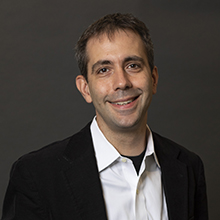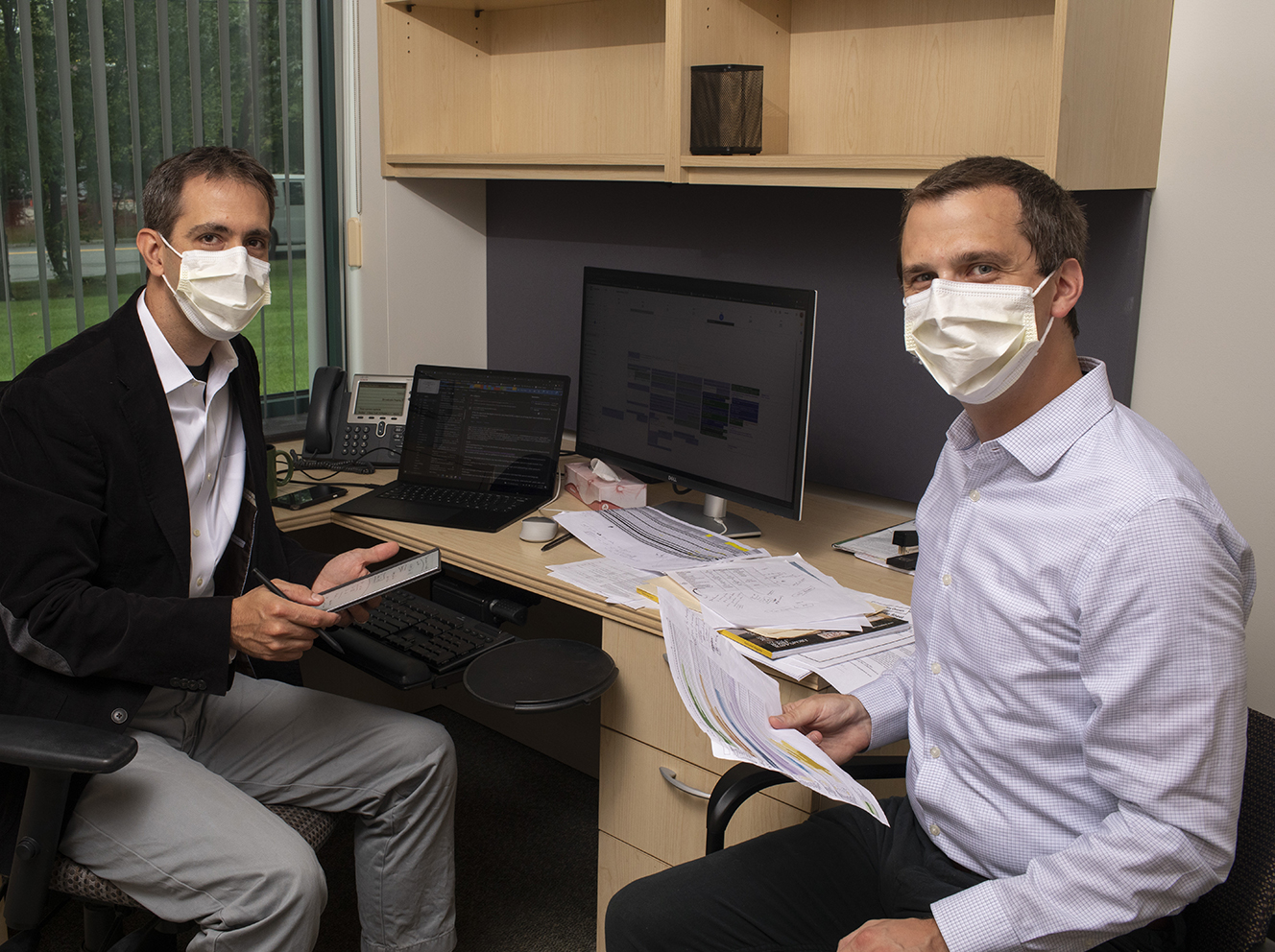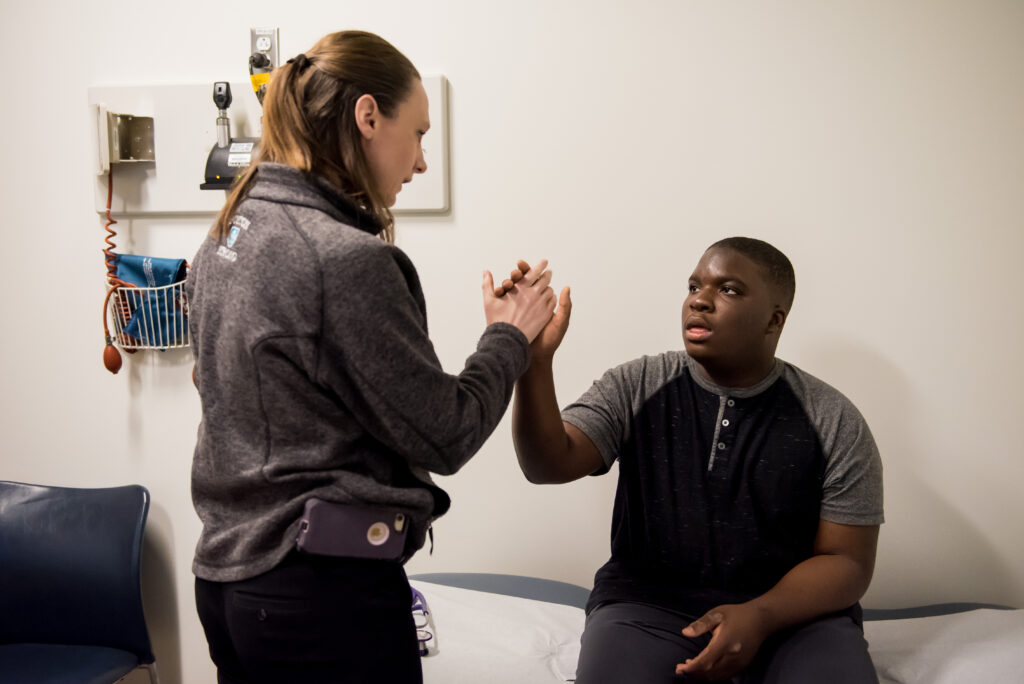Jacob Hooker, PhD, the new scientific director at the Lurie Center for Autism at Massachusetts General Hospital wants to build connections between the Lurie Center’s world-class clinical program and the greater Boston community of innovative science.
He hopes this effort to work collaboratively will give people with autism spectrum disorder (ASD) more treatment options to manage their interfering symptoms. Today, medications can help, but none address the “core symptoms,” as Dr. Hooker describes them, such as the difficulty with social-communication experienced by people with ASD.
Innovative Leadership
For more than 10 years, the Lurie Center for Autism has been an international leader in patient care, advocacy and research to help children and adults with ASD and other developmental disorders. With its clinical and research base in Lexington, Mass., the Lurie Center offers a wide variety of services.
Dr. Hooker brings his experience as a neuroscientist at the Athinoula A. Martinos Center for Biomedical Imaging at Mass General, where he also studies autism, to his new role as the Lurie Center’s scientific director. Dr. Hooker is also the Lurie Family Professor in the Field of Autism Research at Harvard Medical School.
“My job is to develop a strategy for how we move autism science forward in a very meaningful way.”
“My dual roles at the Martinos Center and Lurie Center are an example of how Mass General supports innovative approaches to research and large-scale collaboration,” Dr. Hooker says.
Mapping the Future
This year, Dr. Hooker and his team are working to create the Lurie Center ASD Science Atlas, a web-based visual platform. The platform will be open to researchers at other institutions and encourage idea-sharing, he says. Through the atlas, the team will work to connect scientific discovery in areas of brain research that share common underlying neuroscience with ASD. One example is to determine if there are connections to neuroinflammation that occurs in degenerative diseases, such as Alzheimer’s disease, Dr. Hooker says.

Dr. Hooker plans to recruit early-career faculty scientists and postdoctoral fellows to conduct, grow and connect the Lurie Center to biomedical research at MIT, the Broad Institute and biotechnology and pharmaceutical companies.
“My job is to develop a strategy for how we move autism science forward in a very meaningful way,” he says. “Ultimately, I want to see a tangible connection between the things that our research team can do and the patients we serve. Bold catalysis of breakthroughs in autism will start with philanthropy — there is no other path.”
Unveiling ASD Biology Thanks to Philanthropy
The Lurie Center for Autism was established with a transformational gift from Mrs. Nancy Lurie Marks and the Nancy Lurie Marks Family Foundation, which since 2009 has invested more than $50 million to advance autism treatment and research. While the first decade focused on clinical expansion, and in particular caring for the growing numbers of adults with autism, the emphasis now is on leveraging the clinical platform to advance innovative research. The foundation recently made a gift of $3.25M to support this research expansion.
In 2013, Dr. Hooker was brought into autism research, when inspired by their grandson, Bob and Donna Landreth of Midland, Texas, made their first significant gift to study inflammation in the brain and its connection to ASD.
The study the Landreths funded involved work at the Martinos Center, where Dr. Hooker and his team used neuroimaging of individuals with ASD to study microgila, which are non-neuron cells in the brain that are also part of the immune system. The team found microgila in males produced a very different signal than in females. The research, published in 2019, could further understanding of why autism affects four times more males than females.
The study used brain scans and was the first of its kind. The team developed ways for nonverbal patients to communicate with researchers during the scan to reduce anxiety. “Imaging gives us a window into the brain that is incredibly powerful and underleveraged,” Dr. Hooker says. “This is a big step. In future studies, we can think about how to intervene to lessen or prevent autism.”
An Eye Toward Future Research
Chris McDougle, MD, director of the Lurie Center and the Nancy Lurie Marks Professor of Psychiatry at Harvard Medical School, says the team is excited to have Dr. Hooker lead. “He is one of the most talented, creative minds in the world, and, I am certain that, through his leadership, the Lurie Center will make critically important contributions to better understanding the causes of autism and developing more effective treatment interventions.”
“The investment of the Nancy Lurie Marks Family Foundation and the Landreths are helping us recruit talented people, solve problems and leverage additional money for bigger studies.”
Throughout his own career, philanthropy has also played an important role, Dr. Hooker says. Dr. Hooker was named a Phyllis and Jerome Lyle Rappaport MGH Research Scholar 2016-2021 and through the program, he was able to pursue bold research and secure additional funding.
Dr. Hooker says the pace of autism research in the years to come will continue to rely heavily on donor support.
“The investment of the Nancy Lurie Marks Family Foundation and the Landreths are helping us recruit talented people, solve problems and leverage additional money for bigger studies,” he says. “Without such transformational support, there is absolutely no way we could make a difference.”
To make a gift to support the Lurie Center for Autism’s research, please contact us.

